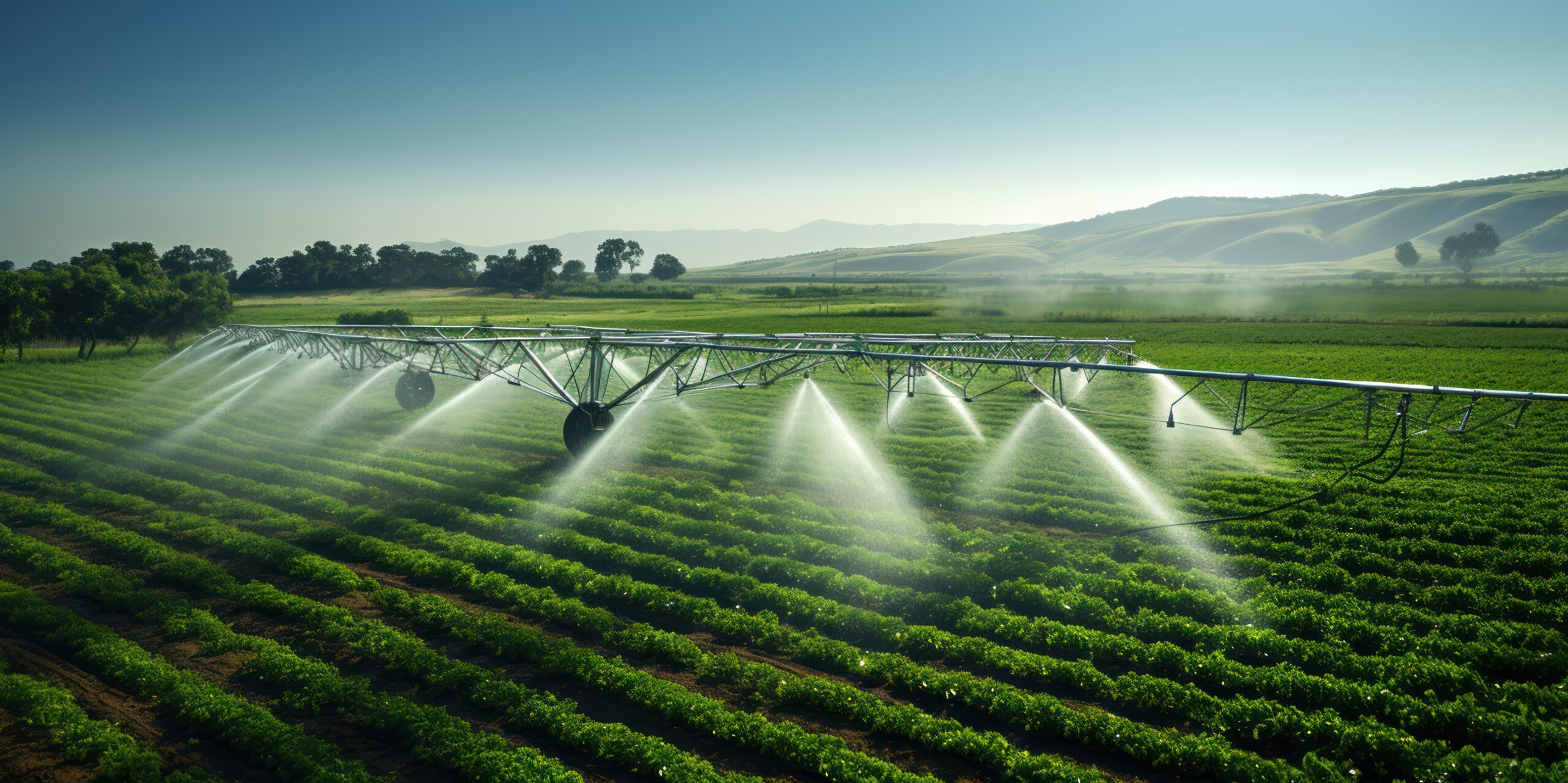
The global agricultural industry is undergoing a seismic shift in 2025. For decades, farming practices have been designed to meet the growing demands of a ballooning population, often at the expense of the planet. However, the rising costs of environmental degradation, resource depletion, and climate change are forcing a collective rethinking of how food is produced. Sustainability is no longer a nice-to-have—it’s a survival imperative.
Today’s agro industry faces a dual challenge – feeding 8 billion people while ensuring that farming methods regenerate the planet rather than deplete it. Climate change has intensified this pressure, with unpredictable weather patterns, soil degradation, and water scarcity becoming the new normal. At the same time, consumers worldwide are demanding food that is not only fresh and nutritious but also ethically and sustainably grown.
What does this mean for farmers and agro businesses? The future belongs to those who adapt. Sustainable solutions for the agro industry are the key to overcoming these challenges, providing the tools and practices needed to produce more with less. From regenerative agriculture to renewable energy systems and climate-resilient crops, these innovations offer a pathway to profitability while preserving the earth’s resources for generations to come.
This guide explores the top sustainable solutions shaping the agro industry in 2025, offering actionable insights to empower farmers, agro entrepreneurs, and industry leaders. Whether you’re looking to reduce costs, meet global sustainability standards, or future-proof your operations, this guide is your roadmap to success.
1. Regenerative Agriculture – A Game-Changer for Soil Health
Regenerative agriculture is at the heart of sustainable solutions for the agro industry in 2025. This farming approach focuses on improving soil health, increasing biodiversity, and restoring ecosystems through practices like cover cropping, no-till farming, and crop rotation.
Healthy soils not only boost yields but also sequester carbon, helping to combat climate change. For farmers, regenerative agriculture offers long-term benefits, such as reduced dependency on synthetic inputs and improved resilience to extreme weather.
- Impact - The Rodale Institute reports that regenerative farming can increase soil carbon sequestration by up to 50% over conventional methods.
- Real-World Example - Farmers in Iowa adopting regenerative practices have seen a 30% reduction in input costs while increasing yields by 20%.
How Invade Agro Helps - We guide you in transitioning to regenerative farming by offering soil assessments, crop rotation plans, and expert support tailored to your land.
2. Renewable Energy Integration in Farming Operations
Energy consumption is a major cost factor in agriculture, but renewable energy provides a sustainable solution for the agro industry. Solar-powered irrigation systems, wind turbines, and biogas from organic farm waste are now widely adopted to reduce dependency on fossil fuels.
These systems not only lower energy costs but also help farms reduce their carbon footprint, aligning with global sustainability goals. For small and medium-sized farms, subsidies and incentives make renewable energy technologies more accessible than ever.
- Economic Benefits - According to IRENA, farms integrating renewable energy save up to 25% on operational costs annually.
- Success Story - A dairy farm in Germany installed solar panels for cooling systems, reducing energy costs by 40% while ensuring uninterrupted operation.
Invade Agro Advantage - We help you assess and implement renewable energy solutions that align with your farm’s needs, ensuring maximum efficiency and ROI.
3. Water Management – Efficient Use of a Precious Resource
Water is a critical resource in agriculture, yet inefficient use leads to wastage and high costs. Sustainable water management solutions for the agro industry focus on optimizing usage through technologies like drip irrigation, rainwater harvesting, and soil moisture monitoring.
Drip irrigation systems deliver water directly to plant roots, reducing evaporation losses. Rainwater harvesting systems capture and store water during wet seasons, ensuring a reliable supply during droughts. Soil moisture sensors further refine irrigation schedules, preventing overwatering and conserving resources.
- Impact - The World Bank estimates that improved water management practices could increase agricultural productivity by 15–20% globally.
- Case Study - Farmers in Israel have adopted advanced irrigation technologies, cutting water usage by 50% while achieving higher yields in arid regions.
Invade Agro’s Role - From designing drip irrigation systems to advising on rainwater harvesting, we provide end-to-end support for sustainable water management solutions.
4. Climate-Resilient Crops – Preparing for Uncertain Futures
One of the most critical sustainable solutions for the agro industry is the development and adoption of climate-resilient crops. These crops are specifically bred or genetically modified to withstand challenges like drought, flooding, and extreme temperatures.
Climate-resilient crops not only secure yields but also reduce dependency on inputs like water and fertilizers. They are an essential tool for farmers operating in regions vulnerable to climate variability.
- Scientific Data - Research by CGIAR suggests that drought-resistant maize varieties can increase yields by 30% during dry seasons.
- Example - Farmers in Sub-Saharan Africa planting drought-tolerant millet have reported a 40% increase in production, even during prolonged dry spells.
Why Invade Agro - We help you identify and incorporate climate-resilient crops suited to your region, ensuring consistent productivity even under extreme conditions.
5. Biofertilizers – Boosting Soil and Crop Health Naturally
Biofertilizers are replacing synthetic fertilizers as a sustainable solution for the agro industry. These natural soil enhancers contain beneficial microorganisms that improve nutrient availability, promote plant growth, and increase soil organic matter.
By using biofertilizers, farmers can reduce dependency on chemical inputs, improve soil fertility, and meet the growing demand for organic produce. These eco-friendly options are particularly effective in regions with degraded soils.
- Market Trends - The biofertilizer market is projected to grow at a CAGR of 12% by 2030, driven by consumer demand for sustainable farming practices.
- Example - A farmer in Southeast Asia transitioned to using biofertilizers and saw a 25% increase in yields within two years, along with improved soil health.
Invade Agro Expertise - Our team provides tailored recommendations on biofertilizer application, ensuring optimal results for your crops and soil conditions.
6. Smart Supply Chain Management – Reducing Waste and Increasing Efficiency
Supply chain inefficiencies contribute to significant post-harvest losses. Smart supply chain solutions leverage technology to streamline logistics, improve storage conditions, and enhance traceability. Blockchain and IoT devices are enabling real-time tracking of produce, reducing waste, and ensuring timely delivery.
By optimizing supply chains, farmers and businesses can reduce costs, increase profits, and meet consumer expectations for transparency and quality.
- Global Data - FAO estimates that up to 30% of global agricultural production is lost post-harvest. Smart supply chains can cut these losses by half.
- Success Story - A cooperative in Kenya used IoT-enabled storage facilities, reducing post-harvest losses by 35% and increasing exports.
How Invade Agro Supports You - We provide solutions for integrating blockchain and IoT into your supply chain, ensuring maximum efficiency and profitability.
Conclusion – The Agro Industry’s Journey Towards a Sustainable Future
Sustainability isn’t just about meeting the challenges of today—it’s about shaping the future of agriculture for the better. By adopting sustainable solutions for the agro industry, farmers and agro businesses have the opportunity to create a win-win scenario where profitability meets environmental stewardship.
Imagine a world where farms are powered by renewable energy, crops thrive in healthy soils free from harmful chemicals, and water is conserved through precision irrigation systems. Picture a future where supply chains are transparent, efficient, and virtually waste-free. This isn’t just a dream—it’s the reality that sustainable practices can bring.
But here’s the catch – the journey toward sustainability requires bold action, innovative thinking, and the willingness to embrace change. The time to act is now. The longer we delay, the greater the risks to our environment, our food systems, and the livelihoods of farmers worldwide.
Take the Leap with Invade Agro Today
At Invade Agro, we believe that sustainable agriculture is the foundation for a thriving future. Our expertise lies in equipping farmers and businesses with customized solutions that make sustainability practical, profitable, and achievable. From integrating renewable energy systems to implementing regenerative farming practices, we’re here to guide you every step of the way.
Why Choose Invade Agro?
- Tailored Solutions - Every farm is unique, and we design strategies that fit your specific needs.
- Proven Expertise - Backed by years of experience, we bring global insights and local knowledge to the table.
- Future-Focused - Our solutions not only address today’s challenges but also position you for long-term success.
Don’t wait to start your sustainability journey. Let’s revolutionize your agro operations together.
Contact us now to learn how our sustainable solutions for the agro industry can transform your business and secure your place in the future of farming. Together, we’ll create a resilient, sustainable, and profitable future for agriculture.
